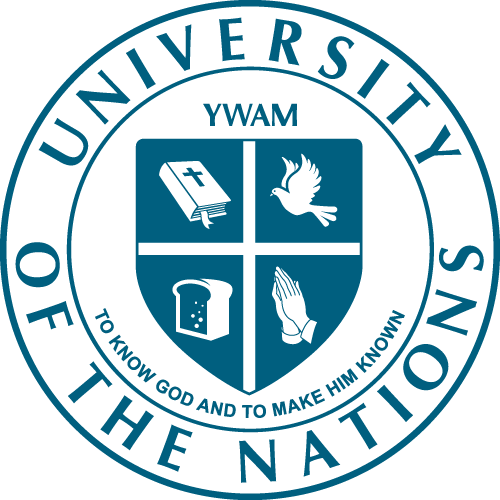Satan is a created angel, who in pride, rebelled against God. The Bible implies that ⅓ of the population of angelic beings rebelled along with him (Revelation 12:4). He is no equal to God. Yet, God allows him and the other demonic forces to continue to exist from this point of rebellion on for God’s own good purposes until their ultimate defeat through the first and second coming of Jesus.
Satan shows himself to be a deceiver aiming to sow distrust in God and his ways in Genesis Chapter 3. People and creation were fundamentally affected by the sin of Adam and Eve. They opened the door for Satan to take their God-given rule in creation releasing suffering, disease and death. Since then, all have sinned and fall short of God’s glory leaving God’s Image Bearers broken.
Adam and Eve realize they are naked and afraid. So, they hide from God. God graciously pursues them, asks them questions, listens to their answers and responds to them. As a result of their choice, human relationships between men and women will be negatively affected. God warns them that their assignment to multiply and to cultivate the earth has become harder. God clothes them with animal skins and banishes them from the garden. Yet, in spite of their refusal to take responsibility for their sin, God promises a day would come when an offspring of the woman would crush Satan under his feet.
God, in his effort to reinstate all humanity to our rightful place, chooses to defeat Satan through this offspring of the woman, Jesus. But it would take time to prepare the way for Jesus.
The first few chapters of Genesis tell the story of all humanity’s descent into more and more darkness. God is sorry that he has made humans and destroys all but Noah and his family through a great flood (Genesis 6:6). God makes a covenant with Noah and promises that he will never again destroy all humanity in this way. Nevertheless, Noah and his descendants continued in their evil ways. From then to the present, all human societies/cultures, to one degree or another, are impacted by sin and are in need of redemption.
God’s faithfulness is revealed through his additional covenants with Abraham, Moses and David. After preserving Abraham’s line through captivity in Egypt, God brings these people out of slavery and forms them into the people of God, the nation of Israel. God then gives them instructions for the tabernacle so that he can dwell in their midst, as well as rules and the Law, language and culture and a sacrificial system within which he can reveal himself, reveal their predicament as Broken Image Bearers in a broken creation, and prepare them to receive and understand Jesus. Israel’s mandate is to dwell with God and reflect and share his blessings with all the nations.
Right from Deuteronomy 6, God speaks of a future HOPE: that one day something will happen and the Law will be written on our hearts. Throughout the Old Testament, the Prophets point to the day when the Spirit will be poured out and the dead will be restored to life. Also, the writings of the Prophets and the Psalms point us toward a coming Messiah who will establish God’s kingdom and reign.
Engaging your DTS in this part of the Story
We teach and engage the DTS in discerning and resisting the enemy in both the way live and pray, including proclaiming the nature and character of God.
We bring awareness of Holy Spirit’s role to call students into truth and to bring awareness of places students are deceived or walking in sin. We provide appropriate times for confession and repentance of sin, in cooperation with Holy Spirit to live more like Jesus. Journaling these experiences can help solidify what God is doing in student’s lives.
When appropriate, we have times where students can work through any problems they have with others, forgive and receive forgiveness, receive healing or deliverance, and deal with any sin or wrong perceptions of God or themselves.
We have intercession times for places in the world that are going through suffering such as war, oppression or disaster. We have intercession times for the nation we are in and those that will host us on Outreach, both standing against any distortions, corruption or injustices and calling the nation into its fullness as God intended.
We practice relationships in Small Group interaction, on local outreach and Outreach Phase teams, in team work duties and other group activities. We commit, from the beginning of the DTS until the last day, to build and maintain healthy community in which we can participate, reflect, share and receive God’s love and life in its midst. Meals, fun nights, times of celebration and informal times together are ways to contribute to this.
We value one another through cultural expressions, cultural meals or events, and praying in different languages. We allow uniqueness to be expressed in fun/talent nights, and through giving students as much choice in outreach, work duties etc. as we can. We involve the DTS in work duties and appropriate responsibilities and model that work is good!
We utilise giftings and talents in the school such as having students decorate for love feasts, cook special meals, share testimonies, teach something they are good at, give opportunities for creativity, and contribute to the development of ministry in the Outreach Phase location, etc.
Key Concepts
Satan is a created being, who in pride, rebelled against God along with other created spiritual beings.
Satan is evil. He is a deceiver, accuser, thief, tempter, and a liar. As the enemy of God, he fights against God and his purposes.
People and creation were fundamentally affected by the sin of Adam and Eve. They opened the door for Satan to usurp their God-given rule of creation.
Disobeying God’s commandments is sin.
Every person has sinned and is experiencing its consequences.
Some of the general effects of sin include suffering disease and death.
All nations, societies and cultures, to one degree or another, are built on non-biblical foundations.
Satan and other fallen created spiritual beings, though defeated through the cross, continue to have a negative impact in creation, cultural institutions and people. They will experience final defeat when Jesus returns.
The Story Line
- God: Father, Son and Holy Spirit
- Creation: Image Bearers
- The Fall: Broken Image Bearers
- Children of Abraham: Covenant Image Bearers Failed
- Jesus Christ: The True Image Bearer
- Holy Spirit and the Church: Renewed Image Bearers
- Jesus’ Return, Kingdom Come, Renewal of Creation: Reign of Restored Image Bearers Bearers, with Jesus, in creation under God
Key Themes
The Impact of Sin on People and All Creation
Sin and Repentance
Forgiveness and Grace
Lordship of Jesus
Resisting Satan and Evil (or Spiritual Warfare)
Suggestions for Reflection:
Satan is a liar. He works to distort our view of God so that we do not trust him. What is changing in your perception of who God really is, and how he desires to relate to you?
Is there an attitude or behaviour that you are hiding from God and others? Perhaps you are refusing to acknowledge it yourself. God knows and is present to you. Consider talking to him about it.
Holiness is more than not sinning (e.g. gossip). It is living in ways that reflect God’s character (e.g. encouraging others). Think about whom you might interact with today. Consider what you can say to them that might encourage, bring joy or honour to them. Say it to them.




